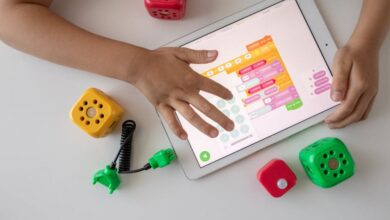How to Choose Reading Games for Early Learners
Reading is a fundamental skill that lays the groundwork for a child’s academic success. For early learners, engaging in reading games can make this process enjoyable and effective. However, with an array of options available, choosing the right games can be daunting for parents and educators. Here’s a guide to help you navigate the selection process, ensuring that the games you choose are educational, engaging, and appropriate for young learners.
Understanding Developmental Needs
Before diving into the world of reading games, it’s crucial to understand the developmental stages of early learners. Children aged 3 to 7 are typically at a stage where they are developing phonemic awareness, vocabulary, and comprehension skills. Look for games that are designed to enhance these specific areas. Games that involve letter recognition, sound matching, and simple storytelling can be particularly beneficial.
When selecting a game, consider the child’s current reading level. A game that is too advanced can lead to frustration, while one that is too simple might not hold their interest. Tailoring the difficulty to match the child’s skills will ensure they remain engaged and motivated.
Interactive and Engaging Elements
The best reading games for early learners incorporate interactive and engaging elements. Look for games that encourage participation rather than passive observation. Board games, card games, and digital apps that require players to make choices, solve puzzles, or engage in storytelling are excellent options.
Games that utilize colorful graphics, interesting characters, and sound effects can capture a child’s attention and keep them involved. Additionally, consider games that promote cooperative play, allowing children to work together to achieve a common goal. This not only makes the experience more enjoyable but also fosters social skills.
Incorporating Multi-Sensory Learning
Young children thrive in environments that engage multiple senses. When choosing reading games, look for those that incorporate visual, auditory, and tactile elements. For instance, games that involve physical letters that children can manipulate, or apps that read stories aloud while highlighting the text, can enhance the learning experience.
Multi-sensory games can also include music, rhymes, and rhythms that make learning memorable. These elements can help reinforce phonetic sounds and improve retention. The more senses that are engaged, the more effective the learning process will be.
Adapting to Different Learning Styles
Every child has a unique learning style, and recognizing this can help you choose the most suitable reading games. Some children are visual learners, while others may thrive with auditory or kinesthetic experiences. Look for games that offer a variety of approaches to accommodate different preferences.
For example, games that require children to visualize scenarios can appeal to visual learners, while those that involve storytelling or songs might resonate with auditory learners. Kinesthetic learners will benefit from games that involve movement or hands-on activities. By selecting games that cater to various learning styles, you can create a more inclusive and effective learning environment.
Setting Clear Goals
When choosing reading games, it’s important to set clear educational goals. Determine what specific skills you want to target—whether it’s increasing vocabulary, improving comprehension, or enhancing phonemic awareness. Choose games that align with these objectives to ensure that children are not only having fun but also making measurable progress.
Keep track of their achievements and adjust your game selection as they grow and develop. This adaptable approach will help maintain their interest and enthusiasm for reading.
Evaluating Quality and Safety
Finally, consider the quality and safety of the games you choose. Look for age-appropriate materials that are durable and safe for young children. Research the manufacturers and read reviews to ensure that the games are well-designed and effective.
Incorporating educational value is key, but it’s equally vital that the games are enjoyable. High-quality games that are engaging and developmentally appropriate will create a positive reading experience for early learners.
Cultivating a Lifelong Love for Reading
Choosing the right reading games can significantly impact a child’s attitude toward learning. When children associate reading with fun and engagement, they are more likely to develop a lifelong love for books and literature. By taking the time to select games thoughtfully, you can create an enriching environment that supports their reading journey.







